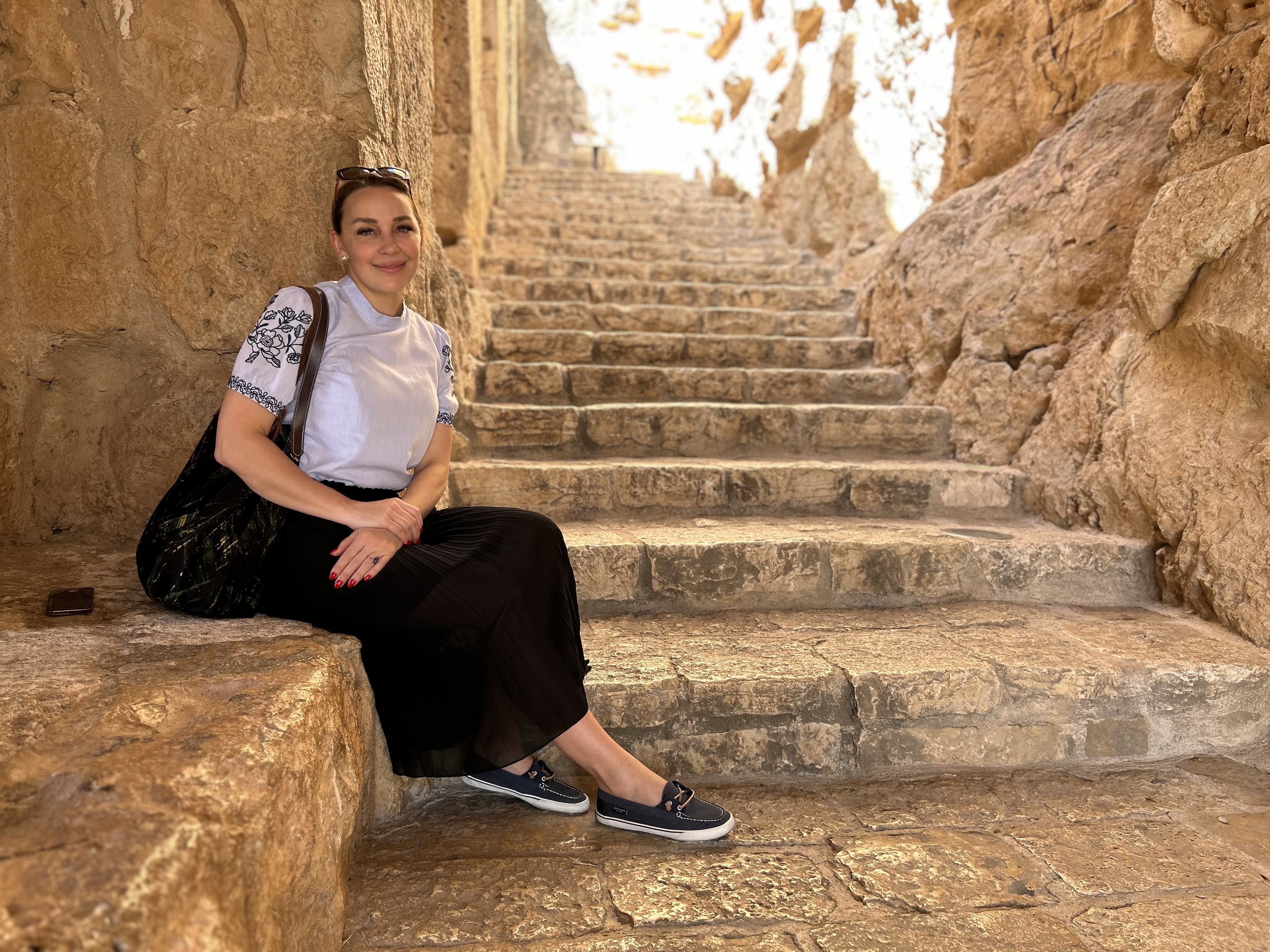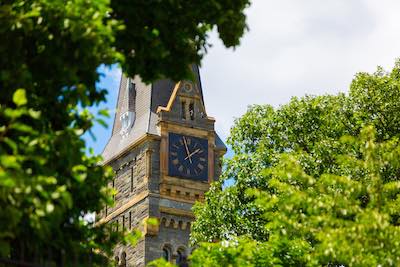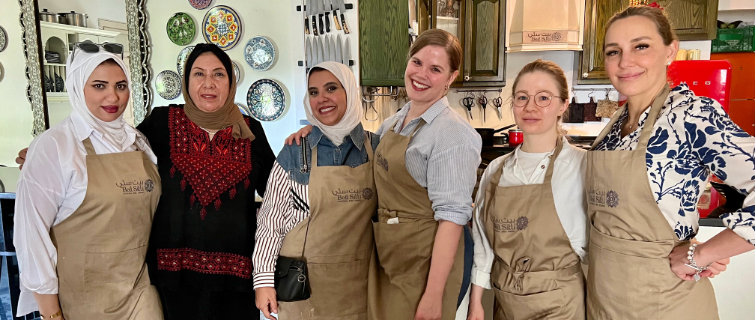
As a Doctor of Liberal Studies student, I spent a transformative summer exploring Jordan’s rich historical and social landscape. Filled with academic inquiry, cultural immersion, and service— each moment deepened my research, teaching, and language skills to assist refugees in Amman.
One of my earliest experiences in Amman was taking a taxi, offering a glimpse into the everyday life of the locals. With warm hospitality, the driver shared a large photo album chronicling his life. As we navigated the streets, he pointed out notable landmarks while I turned the pages, revealing snapshots of family gatherings and events from his life in the West Bank before migrating to Jordan. This unexpected connection left a lasting impression on me, demonstrating the warmth and openness I would encounter in Amman.
Language Mastery in Amman
My journey in Jordan centered around an intensive Arabic program at the Sijal Language Institute, a critical component of my doctoral curriculum. The daily language classes were rigorous and designed to enhance my reading, writing, and speaking Arabic proficiency—skills essential for my research on female-headed households (FHHs) in Jordan’s refugee camps.
One of the most transformative moments came when I could converse in Arabic with one of my instructors for over three minutes. This wasn’t just about mastering Arabic; it was about realizing how effective communication could break down cultural barriers and deepen my understanding of the lived experiences of people from different backgrounds.
Giving Back: Teaching and Volunteering
My days didn’t end when my classes did. In the evenings, I volunteered at the Collateral Repair Project (CRP), an organization that educates refugees in Amman. I taught English to women and men who had fled conflicts in Syria, Sudan, Afghanistan, and Iraq. This role was more than just teaching; it was an opportunity to learn from and support a community central to my research and personal growth.
The resilience of the refugees I met at CRP was inspiring. Despite their hardships, they were determined to learn and improve their lives. One participant even traveled three hours to attend free language courses each week, driven by a desire to enhance their opportunities through learning English. I was honored to contribute to their journey by introducing them to a fun and engaging way to learn—teaching them how to play the American version of Wheel of Fortune to practice English letters and spelling. None had heard of the game before, but they quickly caught on. Before long, the competition intensified, with shouting, cheering, and excitement building as they spelled words correctly. Witnessing their enthusiasm and progress as they mastered the language and the game was incredible.
On weekends, I volunteered with Squash Dreamers, a program that empowers Syrian female refugee youth through sports. The girls, bused in from areas outside Amman, quickly became a source of inspiration for me. While my Arabic language skills were fair, and their English was as well, it reminded me that there are many ways to connect without words—through laughter, modeling actions, and the universal language of sports. We played games like four square and a lively ball-passing game where each girl had to quickly name an object in English before tossing the ball to the next player. These activities fostered a sense of camaraderie, helping us connect and learn from each other in a fun and supportive environment.
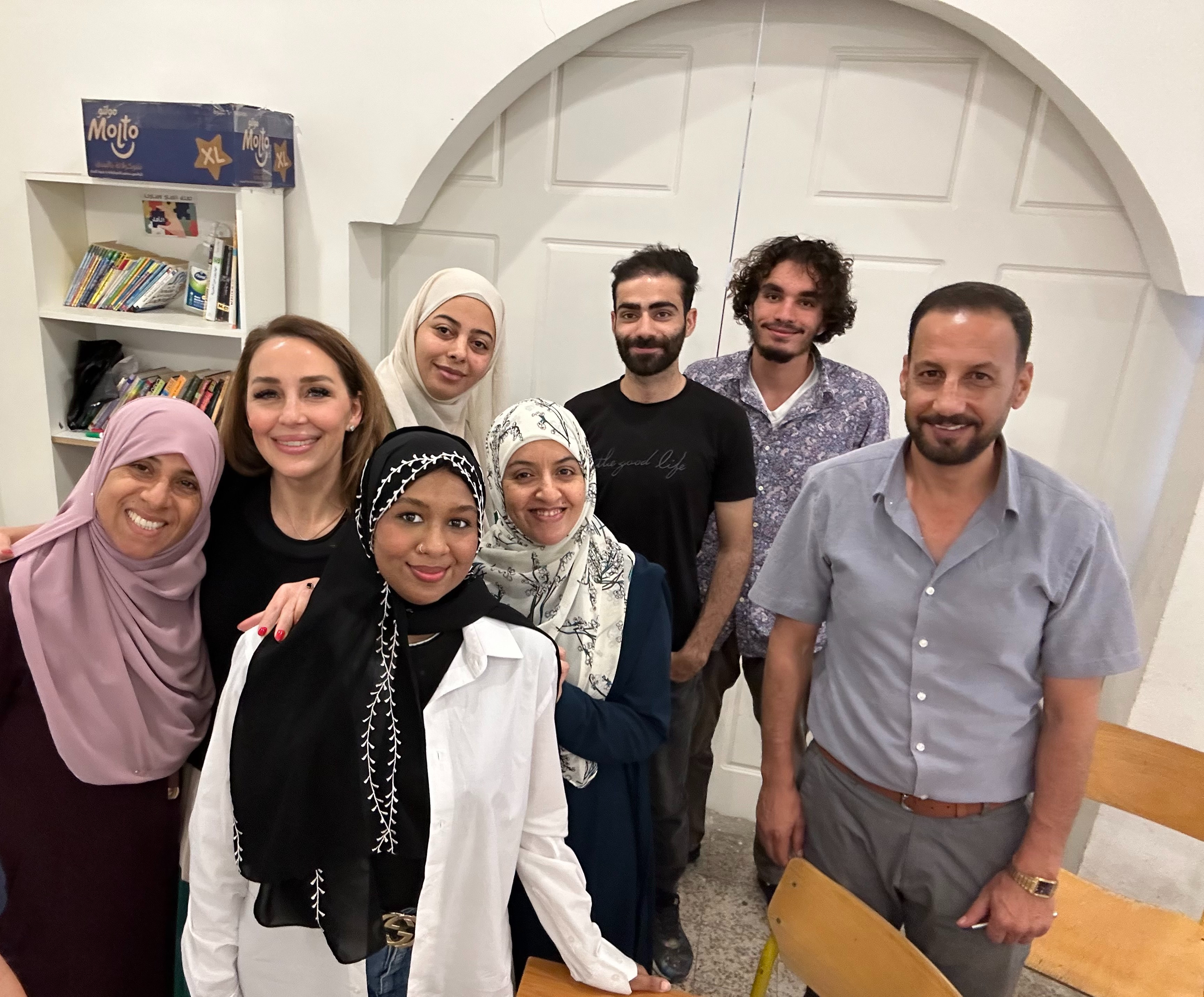
Research and Collaboration
My time in Jordan was also a crucial period for advancing my doctoral research on female-headed households (FHH) in refugee camps. At Sijal, I connected with staff from The UN Refugee Agency in Jordan, who provided me with the latest reports and recommended valuable databases, including the 2024 Vulnerability Assessment Framework, which offered critical data on the challenges faced by refugees in camps and host communities. These insights, along with the in-person connections I made with international development organizations and local experts, were instrumental in identifying areas where my research could make a meaningful impact.
Exploring Jordan’s Cultural Heritage
As part of the cultural immersion program, amidst my studies, I explored Jordan’s most iconic sites, including Petra, the ancient city carved into the mountains. Walking through the Siq, the narrow, winding gorge that serves as the entrance to Petra, felt like stepping into another world. The towering cliffs on either side created an enclosed, shadowy passage that built a sense of mystery and anticipation.
When the Treasury finally emerged from the rocks, it was nothing short of magical—a sudden, breathtaking reveal that felt like I had stumbled upon a hidden city untouched by time. The craftsmanship of the Nabataeans, who built this monumental structure, was evident in the detailed columns, statues, and elaborate carvings, which testified to their incredible skill and ingenuity.
I also spent time in Wadi Rum, where the vast desert left a lasting impression on me. I’ll never forget the nights spent in a tent, feeling the winds whip across the fabric, a constant reminder of the harshness of the landscape. We ate meat buried underground to cook—a traditional method—and I rode a camel and encountered a tiny kitten on a very tall mountaintop while climbing. These quiet, solitary moments made me feel deeply connected to the resilience of this place and its people.
Beyond these iconic sites, I explored other historical landmarks like the Dead Sea, Aqaba Fortress, and Jerash. I even took a traditional Jordanian cooking class, where I learned to make dishes like mansaf and knafeh. Sharing a meal with other women from Kuwait, Germany, and Britain after cooking together was a memorable experience, an authentic taste of Jordanian hospitality.
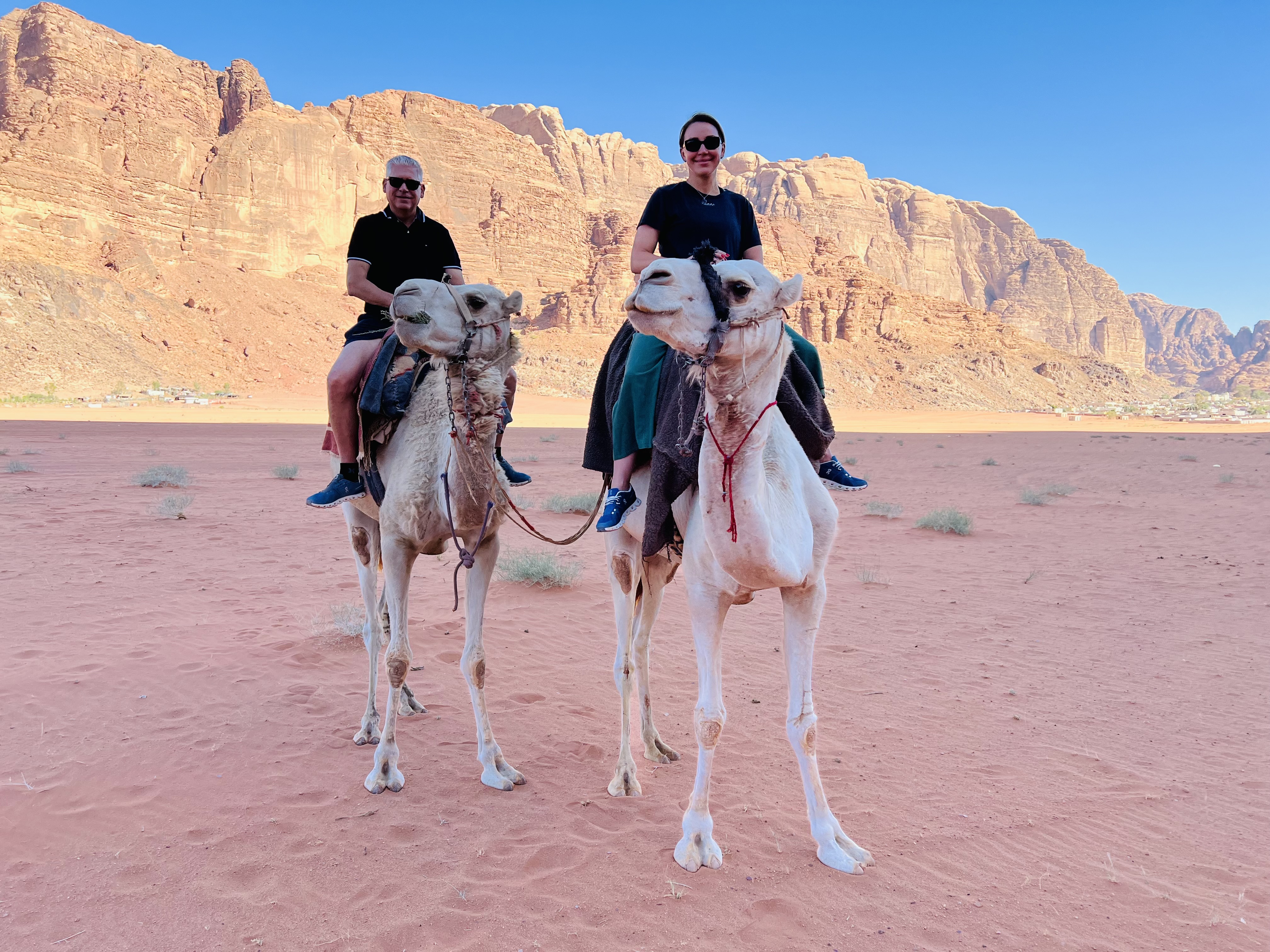
Envisioning Future Pathways
This summer was more than a chance to earn academic credit; it was a transformative period that profoundly influenced my growth as a scholar and global citizen. My time in Jordan has directly informed my doctoral research, which investigates how female-headed refugee households (FHH) utilize smartphones as essential digital tools for survival and integration. This interdisciplinary study focuses on how these households rely on mobile technology for critical functions, such as accessing financial resources, education, and social networks, underscoring the pivotal role of smartphones in refugee life.
The fieldwork, language skills, and firsthand experiences I gained during this journey will continue to shape my future research and teaching. I am deeply grateful for the support from Georgetown’s School of Continuing Studies Doctor of Liberal Studies program and Dr. Charles McNelis, who provided not only resources but also encouragement to embark on this transformative experience. Their guidance has instilled in me the values of intellectual inquiry and ethical reflection, which will guide my scholarly work in the future.
